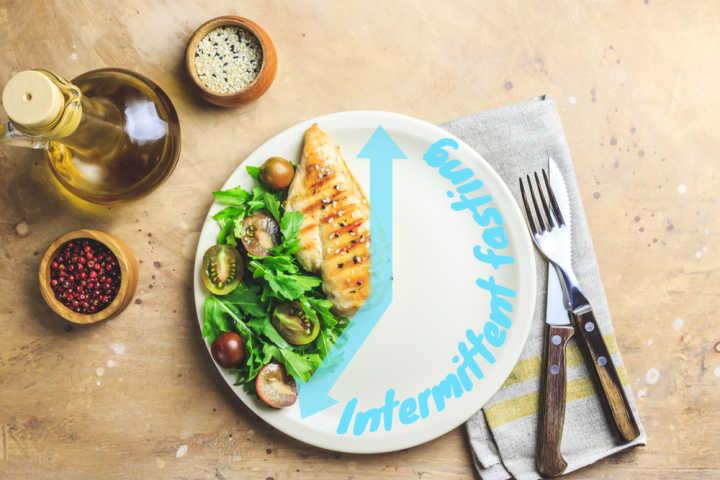Article Contents
Introduction
Today’s seniors are very keen on getting and staying healthy. And, with people living now into their 90’s, there are a few marvelous ways to spend your golden years. Some seniors buy an RV and travel across the US, while others spend their days at a vacation home in the mountains. Retirement is all about relaxing and having fun. But you can’t enjoy your time if you’re sick and not feeling well much of the time. Seniors Guide to Intermittent Fasting 101 is often the solution.
Intermittent fasting has been shown to have a number of health benefits, including weight loss, improved blood sugar levels and reduced inflammation. Intermittent fasting can be a great way for seniors to improve their health and lose weight. In fact, studies found that intermittent fasting helped older adults lose weight and improve their insulin sensitivity.
So, let’s explore all things related to intermittent fasting for older adults!
Intermittent Fasting over 50
That’s just one reason why intermittent fasting for women over 50 has become so popular. Seniors want to feel healthy and strong, and intermittent fasting is an effective way to achieve this goal. There are, however, a few essential things to know. As you get older, it’s more important than ever to check with your doctor before starting a new fasting program. Your doctor can advise you whether starting a diet is a good idea for someone your age in your health. And they can provide lots of good literature on this topic. Below, we go over just a few of the main points to help you get started in the right direction.

Intermittent Fasting 101
There are some basic aspects that can help your intermittent fasting program go off smoothly. For instance, what can you have while intermittent fasting? Is water allowed? As a matter of fact, it is. You should continue to drink the recommended water intake for someone in your age and health category. Intermittent fasting 101 helps you stay on track.
Many people over 50 take some type of medication, so you’ll need water to wash it down. Now, for those meds that require you to have food, there are a couple of ways to handle that. A bowl of oatmeal only has 150 calories but is high in fiber, so it can help you stay regular. It will also serve as the food dish you need for medications that require high fiber intake. You can add blueberries if you like. Oatmeal is one of those foods that cause you to feel sated for longer periods of time, so that it makes it a great idea for any diet.
Intermittent fasting for men and women: what’s the difference?
While the basic principles of intermittent fasting are the same for both men and women, there are differences in how they may affect each. Several researches have indicated that intermittent fasting may be more effective for weight loss in men than women. It could happen for several reasons.
For men:
- Men generally require more calories due to higher muscle mass and metabolism, which may make it easier to maintain a calorie deficit during fasting periods.
- Men may experience increased testosterone levels during fasting periods, which could lead to improved muscle growth and strength.
- Men release less glucagon (the hormone that signals the liver to break down stored glycogen into glucose, which can be used for energy) during fasting compared to women. That could potentially impact the fasting process differently than it would for women.
For women:
- Women may be more sensitive to changes in calorie intake due to hormonal differences, which may make it more difficult for them to maintain a calorie deficit during fasting periods.
- Women may need to be more careful about breaking their fast, as sudden spikes in blood sugar levels could cause insulin resistance or other metabolic issues.
- As mentioned earlier, women release more glucagon during fasting than men, which could lead to maintaining stable blood sugar levels during fasting periods.
Intermittent fasting tips for women
Since it’s harder for women to lose weight while fasting, we decided to do some research and figure out ways to help them get the most out of intermittent fasting. Here are some intermittent fasting tips for women:
Consider the timing of your fast
Some women may find that fasting during certain times of the month is more difficult due to hormonal changes. If you experience significant hunger or discomfort during fasting periods, consider adjusting your fasting schedule to align with your menstrual cycle.
Pay attention to your body
It’s important to listen to your body and make adjustments to your fasting schedule if necessary. Some women may find that longer fasting periods or more frequent fasting days are too difficult to maintain, while others may do well with more strict fasting schedules. Experiment with different fasting schedules and pay attention to how your body responds.
Focus on nutrient-dense foods
During your eating periods, focus on whole, nutrient-dense foods like fruits, vegetables, whole grains, lean proteins, and healthy fats. These foods provide the necessary nutrients your body needs while also supporting weight loss and metabolic health.
Manage stress
Chronic stress can impact weight loss and metabolism in both men and women. Women may be more susceptible to stress-related weight gain due to hormonal differences. Intermittent fasting can also be a stressful experience for some people. So, incorporate stress-reducing activities like meditation, yoga, or deep breathing exercises into your daily routine.
Consult with a healthcare professional
Before adopting any new diet or exercise plan, particularly if you have any pre-existing health conditions or concerns, it is vital to seek advice from a professional. They can assist you in pinning down the most appropriate regimen for your specific requirements and health goals, as well as provide guidance and support throughout the fasting process.
Intermittent Fasting and Sleep
When restricting our calories to 1,000 calories per day or lower, our basal metabolic rate will also decrease. This drop is what causes the rebound phenomenon where we suddenly gain weight for seemingly no reason. Be sure to keep high-quality proteins, superfoods, low-carbohydrate foods, sufficient fats, and antioxidants in your diet. This way, you’ll stay healthy, regular, and continue to feel good throughout the fast. When you do take care of your alimentation, it doesn’t take much of a change in your diet once you’re ready to break the fast.
One type of intermittent fasting that is gaining popularity is easy to implement. Simply stop eating at 8 pm in the evening and don’t eat anything else till 10 am the next morning. That gives your body 14 full hours of fasting, and it accomplishes quite a bit. It initiates a process called “autophagy,” allowing your body to get rid of unhealthy estrogens that accumulate from the toxic environment we live in. As an added bonus, it can also help prevent insulin resistance. The good news is that you don’t have to do this every night. Simply fast for a week, then stop. Intermittent fasting can help you lose weight and feel stronger.
How to Break an Intermittent Fast
There really isn’t much to do in the way of breaking an intermittent fast. However, to get the most out of your fasting, you can eat some specific foods that will be wholesome and good for your body. These include raw fruits and vegetables, bone broth, leafy green vegetables (kale and spinach), and vegetable soup. Include antioxidant foods like pumpkin, grapes, berries, mango, carrots, and green tea. Extra virgin olive oil is recommended for cooking or salad dressings. For dessert, be sure to have fresh fruit or dark chocolate.
Intermittent Fasting Diet for Seniors
There are a few things to keep in mind when creating an intermittent fasting diet for seniors.
- First, it’s important to make sure that seniors are getting enough protein and nutrients. They may need to include more protein-rich foods in their diet and consider taking a multivitamin to make up for any gaps in their nutrition.
- Secondly, it’s important that seniors stay hydrated during intermittent fasting. This means drinking plenty of water and avoiding sugary drinks.
- Third, make sure you are eating enough food to meet your nutritional needs and that you are including plenty of healthy fats, protein, and vegetables in your diet.
- Finally, it’s important to be patient when starting an intermittent fasting diet. It may take a little time for seniors to get used to the new routine. With patience and a little experimentation, they can create a plan that works best for them.
Tips on Intermittent Fasting Over 50
The Seniors Guide to Intermittent Fasting is safe and offers many health benefits. If you do the intermittent fast during your sleeping hours, it’s fast and easy to do, and there’s not much to break this type of fast.
Remember to eat healthily, don’t miss any of your medications, drink plenty of water, and don’t do the fast for more than two weeks at a time.
Tips on Intermittent Fasting for Men and Women Over 60
Intermittent fasting can be a useful tool for men and women over 60 to improve their health and well-being. Here are some quick tips to help you get started:
- Start slow
- Choose a fasting schedule that suits you
- Stay hydrated
- Focus on quality sleep
- It may take some time to adjust to intermittent fasting, so be patient
Tips on Intermittent Fasting for Men and Women Over 70
The above tips still apply to intermittent fasting for men and women over 70. But here are some additional ones:
- Consume enough protein to prevent muscle loss
- Listen to your body and stop immediately if you experience negative side effects
- Avoid sugary and processed foods
- Break the fast with small, nutrient-rich meals
Conclusion
Fasting is becoming an increasingly popular way to improve overall health. For seniors, intermittent fasting can be a particularly beneficial way to stay healthy and reduce the risk of age-related diseases. We hope this post has given you some insight into the benefits of intermittent fasting for seniors and provided tips on how to get started. If you still have questions, see your doctor. You may also check out our tips on healthy weight gain and tips on improving your health.
Frequently Asked Questions
Is intermittent fasting good for seniors?
Apart from weight loss, intermittent fasting has other health benefits for older adults, including reducing the risk of chronic diseases such as heart disease, diabetes, and cancer. Additionally, intermittent fasting may help improve cognitive function, insulin sensitivity, and increase lifespan. While more research is needed, intermittent fasting may be a good option for seniors looking to improve their overall health.
Is intermittent fasting safe for seniors?
Intermittent fasting is considered safe for seniors provided they are well-hydrated and eat a balanced diet when not fasting. That said, it is always important to speak with a healthcare professional before starting any new diet or health regimen, especially if you are elderly or have any health concerns.
Does intermittent fasting work for seniors?
Though it might not be as easy for seniors to lose weight as it is for younger people, intermittent fasting is still an effective weight loss strategy for seniors. Besides, it can help improve their health and overall well-being with reduced age-related concerns.

